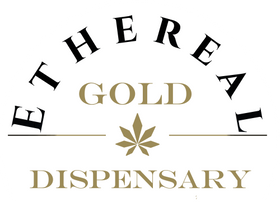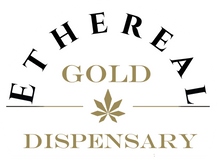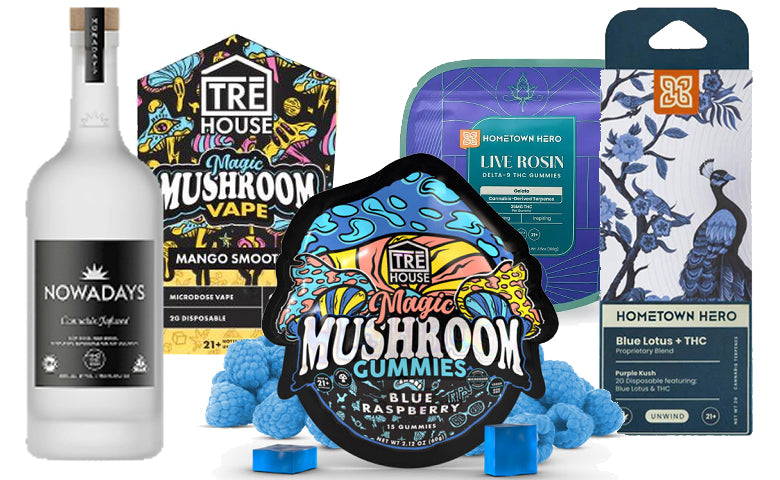In the ever-evolving world of cannabis, new compounds and innovations frequently emerge, capturing the interest of both enthusiasts and novices alike. From naturally occurring cannabinoids to synthetic (seeming) wonders, the cannabis landscape offers a vast realm of experiences. One such compound making waves in recent times is HHC-O. As we delve deeper into the nuances of this synthetic cannabinoid, it's crucial to understand its origin, its effects, and how it stands in comparison to other well-known compounds in the cannabis family. Join us on this enlightening journey, where we demystify HHC-O and its place in the modern cannabis narrative.
Understanding the Cannabis Landscape: HHC vs. HHC-O
Cannabis is a complex plant, filled with a rich tapestry of compounds that play distinct roles in the effects and benefits it offers. HHC (Hexahydrocannabinol) is one such compound that naturally occurs in specific strains — serving as a testament to the vast diversity of the cannabis plant. However, not all cannabinoids are born from nature. Enter HHC-O.
HHC-O is the new player on the block, and its entrance has piqued the curiosity of many. As a synthetic derivative of HHC, HHC-O has been meticulously tailored in laboratories to emulate the potency and effects of THC-O, another synthesized cannabinoid. The intrigue around HHC-O largely stems from its strength, but also from the debate over natural versus synthetic cannabinoids.

The Showdown: HHC-O vs. THC-O
Synthetic cannabinoids have been a topic of controversy and interest in recent years. HHC-O and THC-O stand out as two prominent examples. Neither of them is born from the cannabis plant; they're both engineered. Their origin isn't the only unique aspect — their potency sets them apart too. Being 2-3 times stronger than the traditional THC, they've caught the attention of both enthusiasts and regulators.
While THC-O has gained notoriety for its amplified effects, HHC-O follows closely, offering a similar experience. This intensified potency is a double-edged sword. On one hand, it can lead to a more profound experience, but on the other, it can be overwhelming for the uninitiated. Additionally and most importantly, their synthetic nature and heightened strength have led the DEA to classify both as illegal substances. This decision underscores the importance of understanding and respecting the power and legality of these cannabinoids.
A Quick Dive into HHC-O vs. Delta-8 THC
Delta-8 THC, unlike HHC-O, is a naturally occurring compound within the vast family of cannabis cannabinoids. Although it's less potent than its popular cousin, Delta-9 THC, Delta-8 has garnered interest due to its unique profile. Delta-8 offers a milder experience. However, its natural occurrence in the cannabis plant is in mere trace amounts, leading to its extraction from other cannabinoids for commercial products.
The market has seen a surge in Delta-8 THC products, from vapes to edibles, thanks to its relatively milder effects and natural origins. HHC-O, in stark contrast, is a creature of the lab. Its synthetic roots and absence in the natural cannabis anatomy have led to its illegality. For consumers, it's vital to understand these distinctions when navigating the ever-evolving cannabis marketplace.
Do not think however that Delta-8 THC is a lab-free cannabinoid. Since it is natural in cannabis, yet in small amounts, almost all Delta-8 THC products have seen the lab at some point in their process as they are converted from a major cannabinoid like CBD into Delta-8 THC. This process is known as isomerization and classifies Delta-8 THC and many cannabinoids that go through this process as semi-synthetic.

The Effects of HHC-O
Diving deeper into HHC-O effects, its effects mirror those of THC-O, its synthetic relative. But what does that entail? Users can anticipate an intense euphoria, heightened sensory perceptions, and a profound introspective experience. However, these effects aren't for everyone. The amplified potency means that moderation is crucial to ensure a positive experience.
The legality of HHC-O is another crucial aspect to consider. Being synthetic and having such a potent profile, it's classified as illegal in many jurisdictions. This legal status means potential users should be well-informed and cautious about sourcing and consuming HHC-O. The blend of potent effects and legal implications surrounding HHC-O underlines the significance of making informed choices in the cannabis realm.
Ethereal Gold Dispensary: Quality You Can Trust
In a world of countless cannabinoids and products, Ethereal Gold Dispensary stands as a beacon of quality and trustworthiness. We believe that the best experiences come from nature, and we are committed to offering products that are pure, safe, and adhere to legal standards.
Every product on our shelves undergoes rigorous full-panel lab testing, ensuring that you receive only the best. We prioritize your safety, steering clear of full synthetic cannabinoids and potential contaminants. By choosing us, you're not only securing a premium product but also peace of mind.
Our commitment to quality, safety, and legality ensures that you can dive into the world of cannabis without apprehensions. At Ethereal Gold Dispensary, your well-being is our priority. Experience the gold standard with us.
Ready to begin your experience? Take an extra 10% off your order when you use the code AUGUSTBLOG!
FAQ
What is HHC-O?
HHC-O is a synthetic derivative of HHC, crafted to match the intensity of THC-O
How does HHC-O compare with THC-O?
Both HHC-O and THC-O are synthesized cannabinoids, boasting a potency 2-3 times that of traditional THC. Neither naturally occurs in cannabis, making them illegal.
Is Delta-8 THC similar to HHC-O?
Delta-8 THC finds its roots in nature, occurring within the cannabis plant (albeit in trace amounts). In contrast, HHC-O is entirely synthetic and doesn't naturally occur.
What are the effects of HHC-O?
HHC-O offers an intense experience, similar to THC-O, but it's essential to be aware of its illegal status in many jurisdictions.
Why should consumers opt for natural cannabinoids over synthetic ones?
Natural cannabinoids like those found in our products have been consumed for centuries and are generally considered safe. Synthetic cannabinoids, on the other hand, are newer, less researched, and might have unpredictable effects or potential health risks.







